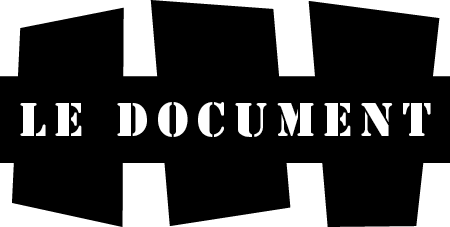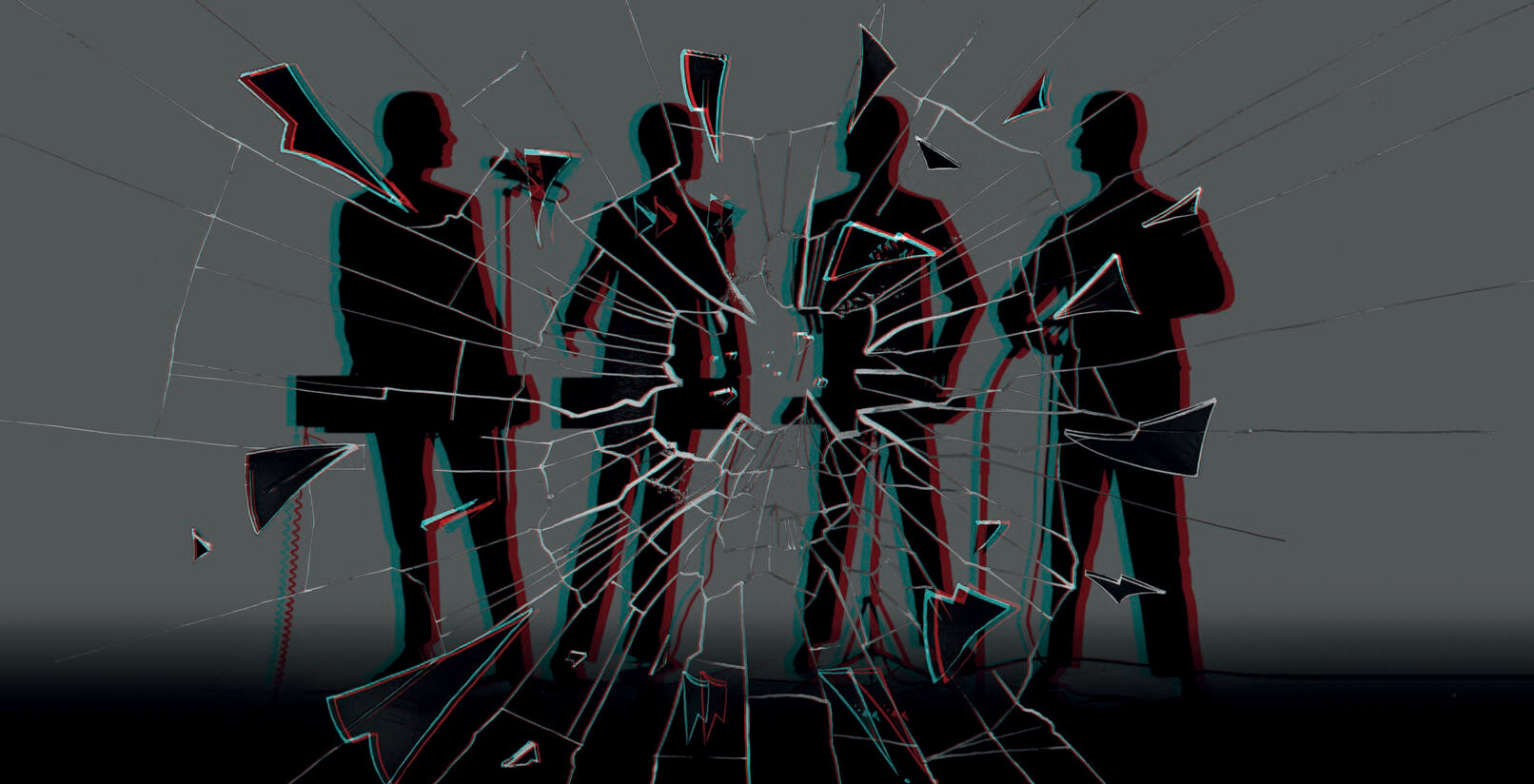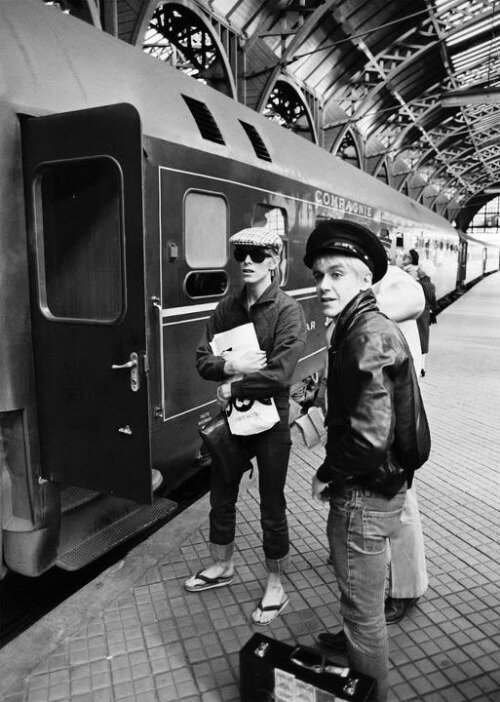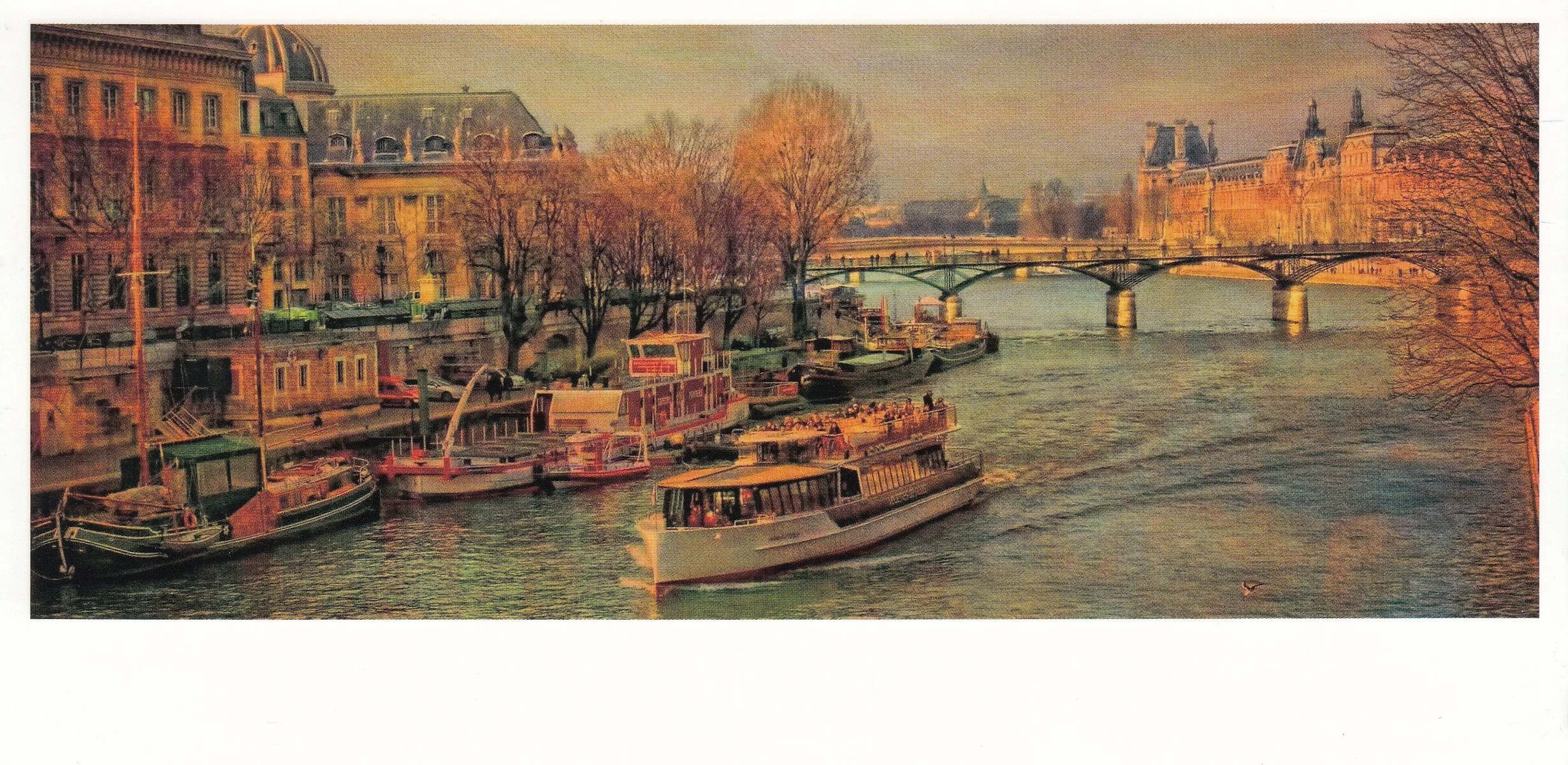Kraftwerk – Hall of Mirrors
With the recent news that Kraftwerk have been offered a place in the Rock & Roll Hall of Fame after six prior nominations, Micko Westmoreland reflects on the inventiveness and surreal qualities of the 1977 classic track, Hall of Mirrors.
Appearing on arguably their finest album Trans Euro-Express, Hūtter and Schneider have described the song as autobiographical, its simplicity and musical starkness are immediately apparent. No drums are heard through out, only the sound of echoey synthesised footsteps spelling out the rhythmic meter.
As a kid I was only semi aware of the greatness of this song, falling second on the LP track listing, I was prepared to acknowledge whilst secretly waiting for the hypnotic start of the following track ‘Showroom Dummies’ to kick in. Clocking in at nearly eight minutes it stands as perhaps the most disparate and incongruous track on the album, but the more time spent contemplating it the more enthralling it becomes. We need the running time to think in, as the artist contemplates their own identity, we contemplate ours too.
In a sense the Hall of Mirrors is turned in on itself like a fractal, reflecting eternally. As previously stated the disconcerting and isolationist feel of the instrumentation adds to this feeling of disorientation. A twinkling harmonic dissonance bubbles and drips through out barely evaporating from the glass.
Sometimes he saw his real face, and sometimes a stranger at his place, is delivered in feminine tones, the notion of the visage that greets us in the mirror each day that doesn’t confirm who we are but only what we look like.
There’s also the obvious play on the greek myth of Narcissus in the lines, He fell in love with the image of himself, and suddenly the picture was distorted. An actualised self has slipped off the tightrope into obsession, lost in his own gaze with a vocal play on the word distorted.
He made up the person he wanted to be and changed into a new personality, riffs the Ziggy influenced mid 70s fascination of playing the role of ‘actor’. Iggy Pop and David Bowie are of course name checked on the album title track, the compliment returned by Bowie on the track V2 Schneider from Heroes. So representation and identity are at the fore, the ever changing self, as we look to empower ourselves through attaining the desire to be perceived as we wish.
Two thirds through the song the main keyboard motif progresses into a melodic solo, we are subject to another journey within the journey, almost like moving from painting to painting in a gallery. Focus then pulls to the lyrical epicentre, with the zenith line, The artist is living in the mirror with the echoes of himself.
Even the greatest stars, live their lives in the looking glass, speaks of a lack of exemption, suggesting all are subject to a process of introspection prior to a feeling of assent to individuation.
Again in the coda of the lyrics read, Even the greatest stars, fix their face in the looking glass, here fix their face replaces discover themselves from the opening chorus. So the theme of construction and transition is again echoed within these closing lines.
Oscar Wilde once said:
The first duty in life is to be as artificial as possible. What the second duty is no one has as yet discovered.
A witty quip, however the interesting word for me within this quote is duty, that somehow we are expected or obligated to perform in the presence of others.
The notion of others, in this sense speaks of the self consciousness or artificiality which can result. Being self conscious is often viewed as a negative, an unnatural state that can never garner true happiness. However, it does lead us into a further arena of enquiry, a challenge to the notion of the real, authentic or true, discussions I’m sure you’ll agree for another time.
The surrealism of Lewis Carroll can never be overlooked as it reminds us of the bizarre spectacle, the perplexing and mysterious role of identity and how this can affect the notion of self.
Hūtter, Schneider and long term lyrical contributor Schmitt have, I feel, made a unique autobiographical statement here about how they feel as artists.
At a running time of 7min 56sec may I suggest a listening environment of complete darkness accompanied by headphones or whilst looking in that mirror in the hallway for the duration.
Hall of Mirrors
A young man stepped into the hall of mirrors
Where he discovered a reflection of himself
Even the greatest stars
Discover themselves in the looking glass
Even the greatest stars
Discover themselves in the looking glass
Sometimes he saw his real face
And sometimes a stranger at his place
Even the greatest stars
Find their faces in the looking glass
He fell in love with the image of himself
And suddenly the picture was distorted
Even the greatest stars
Dislike themselves in the looking glass
Even the greatest stars
Dislike themselves in the looking glass
He made up the person he wanted to be
And changed into a new personality
Even the greatest stars
Change themselves in the looking glass
Even the greatest stars
Change themselves in the looking glass
The artist is living in the mirror
With the echoes of himself
Even the greatest stars
Live their lives in the looking glass
Even the greatest stars
Live their lives in the looking glass
Even the greatest stars
Fix their face in the looking glass
Even the greatest stars
Fix their face in the looking glass
Micko & The Mellotronics play the Dublin Castle on 21st July & Bristol Thunderbolt on 6th Aug with the new single ‘Sick & Tired’, released on July 19th via Landline records.







